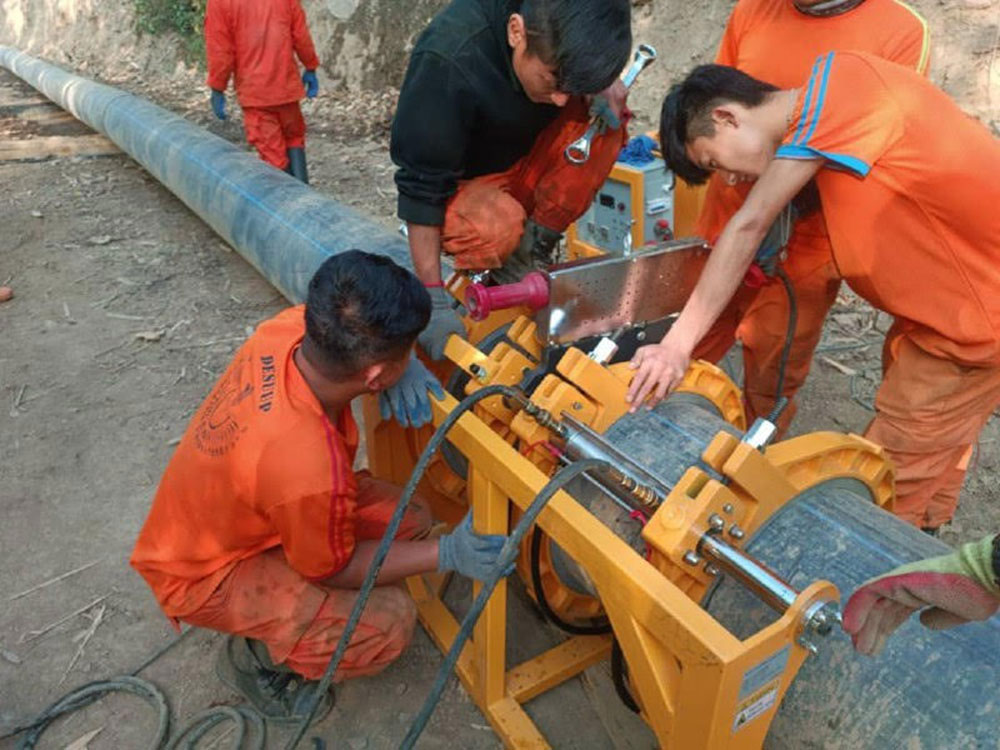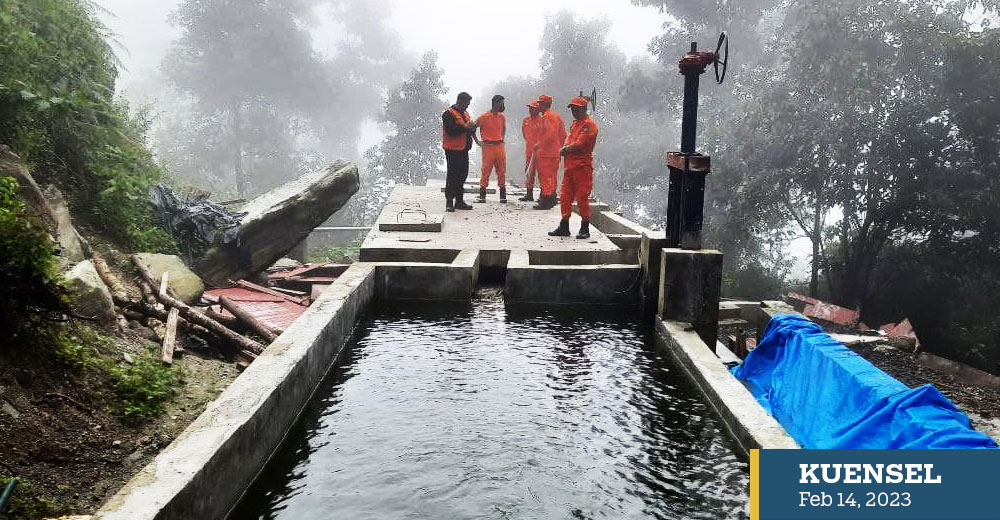Water projects benefit 4,230 households and increasing
Chencho Dema | Punakha
Tshering Dorji witnessed his land turn into a forest right under his nose. Without water to irrigate his one-acre land, a Woongkhar farmer in Ramjar, Trashiyangtse, left his field to fallow. Lack of water, he said, forced him to abandon cultivation.
This changed towards the end of 2020. A De-suung water project has brought water to Woongkhar. Suddenly the potential to rely on his land was back. Yesterday, talking to Kuensel, Tshering Dorji said that he is working on his land. “I have planted chilies and potatoes to make some money,” he said over the phone from Ramjar.
In Guma gewog, Punakha, Sonam Choden has a water tap with running water next to her house. She was one of the many beneficiaries of the pilot project the De-suung Water Project started. “I used to fetch water from the Mochhu river for both washing and drinking when my neighbour’s tap ran dry,” she said.

Three years and several water projects later, about 4,230 households from Ramjar to Phuntshopelri to Tshaphel and Tareythang are reaping the benefits of the water project, one of the many de-suung national service projects. Besides connecting thousands of households, five schools and two Basic Health Units to safe and reliable drinking water, the project also ensured irrigation water of 1,049.6 acres of land across the country.
As the Guardians of Peace celebrate the De-suung Raising Day, the volunteers completed five irrigation projects, 25 drinking projects and four integrated projects making it the most successful community service of the programme.
The De-suung National Service formally launched the first water project on September 25, 2020 and kickstarted the project from Guma gewog, Punakha on November 11 2020 with 74 de-suups volunteering.
If the Guma project was a pilot, it was a success. Today, 225 households in the gewog or 1,945 people have safe and reliable supply of drinking water, which villagers say is enough to irrigate their winter vegetable gardens.
In Temakha village, villagers have a name for the new tap water – Zhab-gi chhu (roughly translates to King’s water). Temakha village has small perennial streams running by, but they were not tapped or went dry. “The tap has never run dry for two years,” said Om, a villager. The village grows maize in winter to supply to the roadside vendors.
The story is the same across the country. According to Ramjar Gup Phurba Gyeltshen, there is a transformation happening in his gewog after the completion of the project in September 2022. Villagers in his gewog had stopped cultivation although the climatic conditions were favourable. “Farmland was turning into forest because of lack of water to cultivate,” said the gup. Since September 2022, farmers have started clearing their land for cultivation.
In Yangner gewog, Trashigang, 16 acres of farmland were left fallow for nearly 15 years, according to farmers. A farmer from Yangner, Sumchung, said with the De-suung Water Project, they now have reliable irrigation water. “We can now cultivate paddy and more vegetables for commercial purposes. We are thankful to the De-sung Water Project.”
The volunteers
De-suup Dorji Wangchuk was a tour guide before the pandemic affected his livelihood. Knowing the water project involved heavy physical work didn’t deter him from volunteering for the pilot project in Guma.
“His Majesty provided us kidu, a monthly salary, so we wouldn’t go hungry. Although I didn’t have much expertise in that project, I happily volunteered to work on the project as a way to give back to the country, he said. “Since it was the first project, we were worried how it would turn out. Fortunately, it was a success and we are happy that the community is benefiting from it,” he added.
Another de-suup who had worked on one of the water projects in the south said that although it was all manual work, they never felt or were treated like workers. “His Majesty’s vision of community service and sungshays (Royal address) motivated us,” he said. “I am proud that I can give back to my country in some little ways,” he said.
The De-suung Water Project was initiated following His Majesty The King’s Royal address to the nation on September 12, 2020 urging the youth to effectively participate in nation-building efforts in the face of the pandemic.
The response was immense.
Since the first project, around 3,900 de-suups received the specialised training in water management. Dechen Wangdi of De-suung National Service said that the projects were implemented smoothly with de-suups learning on the job. “Some de-suups didn’t know how to handle a shovel when they joined. Over time, they became good at what they did.” The de-suups deployed at projects are supported by soldiers and officers from the RBA and RBP.
There are seven ongoing projects which are expected to benefit 1,806 acres of land and 5,255 households. They are Zham village of Minjey gewog in Lhuentse, Chukarpo in Jomotshangkha in Samdrupjongkhar Gelephu Thromde landmark project in Sarpang, Debsi in Thimphu, Sebjana Irrigation, Khamed in Gasa, Omshari landmark project in Pemathang and Martshala in Samdrupjongkhar.


